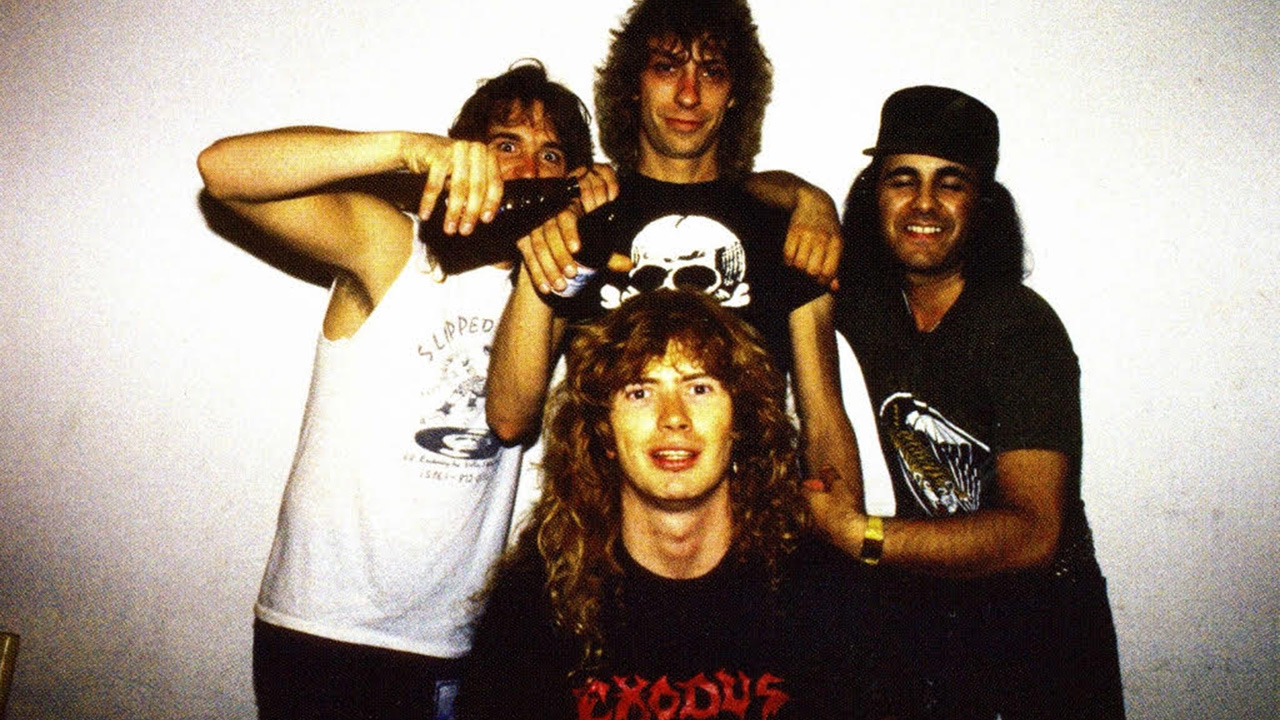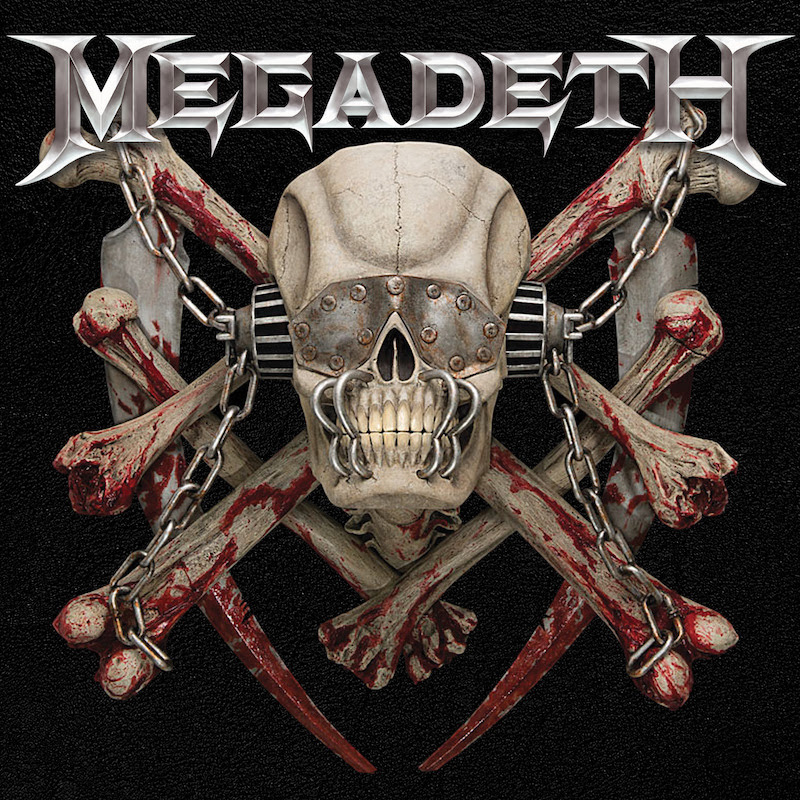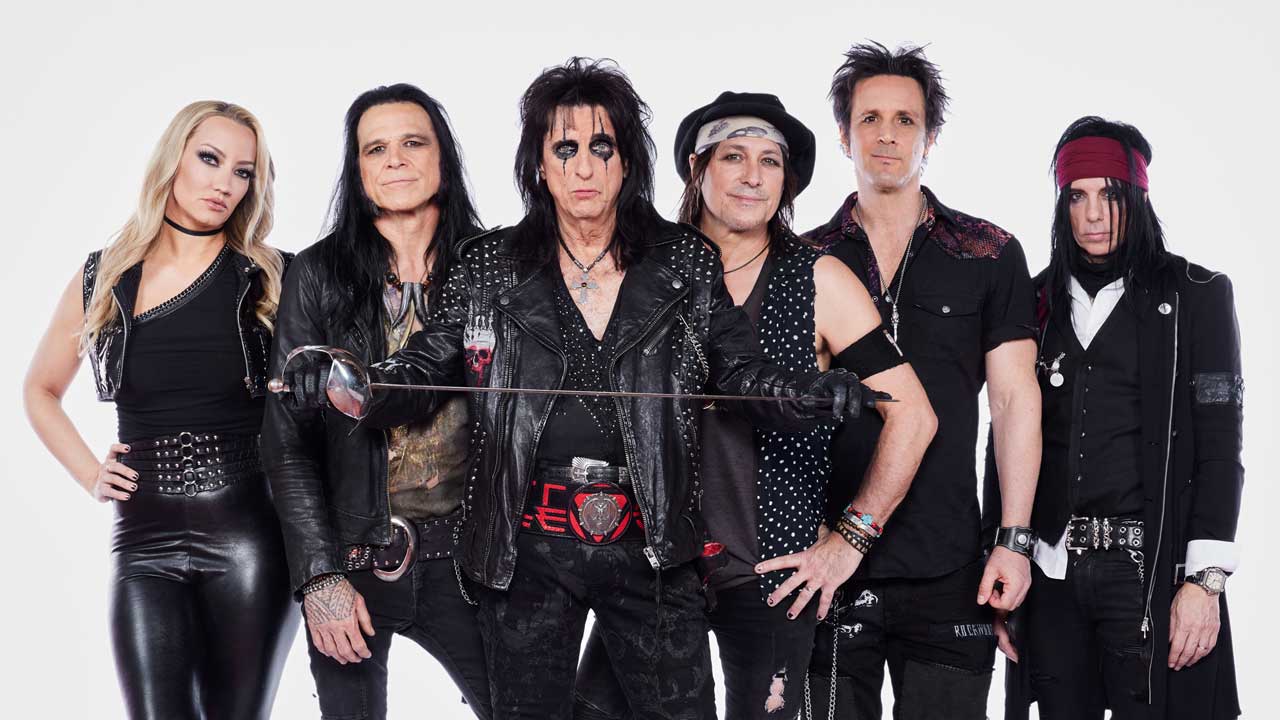Dave Mustaine: "We were all bad boys, it wasn’t an act"
Dave Mustaine reflects on Killing Is My Business... and the formative years of Megadeth

35 years ago, a pissed-off Dave Mustaine set about creating a band, a new band, a band to rival his former brothers in Metallica that was faster and more harder than anyone had seen before. That band were Megadeth.
Following two years of partying and gigging, they were ready to unleash their debut album onto the world; an eight-track slobberknocker through blistering thrash and snarling vocals that went on to form the backbone of everything Megadeth would become.
But how does Dave Mustaine feel about the album over 30 years on? How did it come to be? And how did Megadeth go from snotty little toe-rags to one of the biggest bands in heavy metal? We called up Mr Mustaine himself for a chat…
35 years is a long time to be a band. Did you even think you’d make it to 10 years?
“I didn’t think I’d live to 35 ha ha! It’s been a really great ride, looking back on everything we’ve done, how we kept doing the right thing for so many years. It’s like it’s finally our turn. All the Big Four guys have had really great moments in the sun and now our turn is coming up. We’ll put out another record and hopefully if it’s as good as Dystopia we’re gonna have another really great year, and I’m pretty confident we can do that. I’m really excited about going into the studio to do new music.”
Everybody knows the story about you leaving Metallica, but it was a really short time between your departure and starting Megadeth. What was driving you to continue doing music?
“I think it’s pretty well known that it was hatred… nah, I’m kidding ha ha. I think honestly it really was revenge, I wanted revenge, I was mad and I was confused because I didn’t understand why I was the one who was sent packing. But we’re friends now and that’s all water under the bridge.”
Sign up below to get the latest from Metal Hammer, plus exclusive special offers, direct to your inbox!
Was there a mission statement for what you wanted Megadeth to be?
“It could have been very easy to copy Metallica, I would just have kept writing stuff the way that I was – which wasn’t simple by any means. The Metallica stuff is great music, but there’s a certain kind of path that takes.”
At the time you said you wanted Megadeth to be harder and faster than anything you had done previously. How important was speed to what you were writing?
“Speed wasn’t everything because there was a certain swing to that music. Again, I could have taken the path that Metallica had, which was a little more straightforward, but Gar Samuelson’s jazz drumming really helped me accentuate the playing. I sure miss him, he was a great talent. I look back on that period and I have so much remorse for how certain periods in all our lives ended up. Gar and I talked a little bit at the end, but not as much as I would have liked to in retrospect, especially now that he’s gone.”

What are your strongest memories of the recording session for Killing Is My Business...?
“Being really really upset with Chris Poland and Jason Jones (producer) for blowing half of our recording budget before the session even started, and then having to finish the record with a guy called name Karat Faye who was quite eccentric. I won’t give you the bloody details, but it was a really strange experience being in the studio. They told us they had lockers, ammunition boxes full of dope hidden in the fields out around the studio because it used to be The Moody Blues’ studio, and legend has it that the guys got so high they just hid dope out around the studio. I’m sure at some point somebody thought about getting a metal detector and going out there looking for that stuff ha ha!
"It was really exciting on the other hand too, because I was doing something that I was in charge of. I did something that I love. Being part of Metallica, James and I were so close too, he lived with me in my mom’s teeny apartment for god’s sakes, so when it all went down, there was gonna be a lot of feelings, and my thought was to take it out on this damn guitar here. I started trying to do things on my guitar that I’d never done before. I really really wanted to push it when I did Killing Is My Business….”
Is there anything you’d have done differently with regards to that record and the formative years of Megadeth?
“I’d probably have got a different manager at the beginning; we chose a manager based on what he could provide for us because he was the drug dealer to the band. We were so blinded by partying. Gar and Chris (Poland, guitar) were living a certain lifestyle and when Dave Ellefson and I met with them, instead of them becoming more like us, we became more like them, and we started compromising just about everything. The day we were getting ready to go on tour, Chris Poland decided he was going to go do something and got arrested, and we ended up getting Mike Albert to do the tour. I know Chris didn’t plan on anything bad happening, but who does? Fortunately for me, I anticipate the worst and hope for the best, so that I’m never disappointed. It’s an old adage, but as an old street dog, I know. Whenever anything happens that’s good for me, then great, but if it’s not bad for me, then even better.”
Did you feel like the underdogs when you started? Was more of an uphill struggle than it should have been?
“If underdog doesn’t connotate to portray oneself as a victim, then yes, I was an underdog. But if it comes off like I’m saying ‘Woe is me,’ that wasn’t how it was. I figured, ‘You know what, fuck you, I’m coming for ya.’ Anyone who has ever seen us, they know.
“Hetfield and I hug onstage now in front of thousands and thousands of people, Lars and I put our arms around each other when we take a picture, but everything isn’t rose-coloured glasses. We’ve gone from being three people who would fight constantly and publicly in the press, to people who see each other out on the prairie, a tip of the hat is cool, but for the mostpart we don’t see each other any more, we run in different circles.”
Out of the Big Four, it always felt like Megadeth were the cocky ones with an attitude.
“Metallica and I fighting with each other as much as we did, a lot of people got turned off to it, but it didn’t change the fact that when people came down to picking sides, a lot of times they’d take Metallica’s side and consequently it made things harder for us. For me, the whole thing was like a Chinese finger puzzle, it was like being in quicksand, so I just think ‘Be happy with what you’ve got, you’ve got a great legacy,’
"When my arm got hurt I didn’t think I’d play any more. When I was looking at different things to do with my life, that’s when the memoir came out, that’s when Gigantour came about, that’s when the idea to start managing bands like Diamond Head came about.”
How would you describe yourself back in those days?
“Before the four of us got together, we all did our own thing, but when we got together the combination was like the elements of a storm coming together. We were all bad boys, it wasn’t an act. When we released Peace Sells… we were in a club and something happened; all the band’s girlfriends took off in our limousines, all the guys get into a limo, somebody said something and Chris ended up getting kicked in the face! We all piled on each other and limo started swinging and that was real, man.”
When you look back on your 35 year career, what is there left for Megadeth to achieve?
“I’m pretty happy with what we’ve got right now. To be able to do another record that’s as good as Dystopia or better is my goal right now. I’ve been having a great time with all my businesses – the Megadeth beer business is doing great. I also am enjoying the wine business. There have been so many neat things that have happened as a by-product of my job, and just sticking to your guns.
"The worst thing that you can do in my line of work [is backtrack]. If you say something, own it. If you say something and people don’t like it so you backtrack, you’re gonna immediately split the audience down the middle. And if you backtrack, the people who liked what you said are going to say ‘Fuck you’ and then everybody is going to get pissed. I try not to say anything that’s going to be too out on a ledge any more because there’s so much PC stuff and so much that can be taken out of context. A comma or an apostrophe can fuck everything up!”

Killing Is My Business... And Business Is Good: The Final Kill is out June 8 and available to pre-order now.
Luke Morton joined Metal Hammer as Online Editor in 2014, having previously worked as News Editor at popular (but now sadly defunct) alternative lifestyle magazine, Front. As well as helming the Metal Hammer website for the four years that followed, Luke also helped relaunch the Metal Hammer podcast in early 2018, producing, scripting and presenting the relaunched show during its early days. He also wrote regular features for the magazine, including a 2018 cover feature for his very favourite band in the world, Slipknot, discussing their turbulent 2008 album, All Hope Is Gone.
